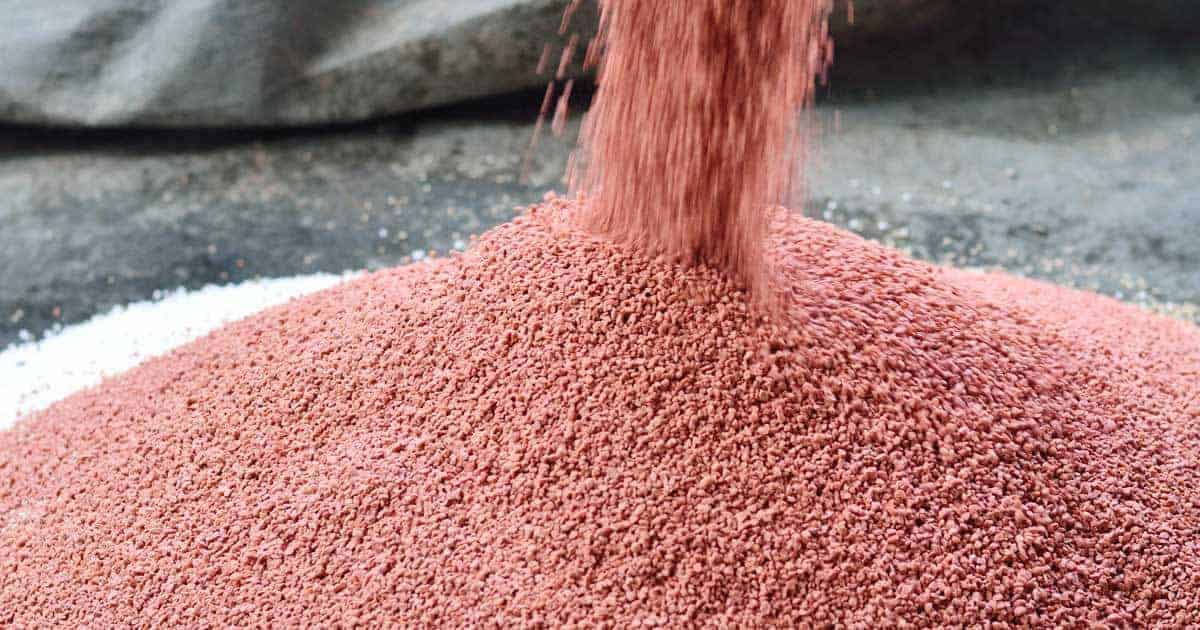Phosphorus it’s one of the three essential nutrients plants or crops need for good growth and health.
When you look at the NPK ratio on fertilizer products or a bag of lawn fertilizer, you should know the letter N stands for nitrogen, K stands for potassium and the “P” in the middle stands for phosphorus.

This element plays a vital role for good plant growth, and it plays a major part in the process of photosynthesis.
It’s easy to see that phosphorus is absolutely necessary to provide plants with energy.
Yes, plants need phosphorus. All living things need this vital element to help build strong tissues. In mammals, phosphorus combined with calcium helps build strong bones and teeth.
In plants, phosphorus helps process carbohydrates and sugars. Young plants need phosphorus in the early development of plant tissues, which carry a particular need for high amounts of phosphorus.
Plants also need phosphorus to produce RNA, DNA, enzymes and proteins. Without it, plants end up looking stunted, immature and lacking in color.
If a mature plant suffers from a lack of phosphorus, it begins to look weak and lose its color. When mature plants suddenly fade to a dark blue-green shade, suspect phosphorus deficiency.
How Is Phosphorus Sourced?
Rich deposits of phosphate salts reside in ocean sediments and rock formations. When rock formations release salts through the process of weathering they dissolve into the water system where plants can absorb them.
It may surprise you to know that agricultural soil is often quite lacking in phosphorus because it is lacking in weathered rock formations. In these low phosphorus conditions, it is important to add phosphorus in fertilizer or phosphate fertilizer combinations and/or organic matter rich in phosphorus.
Compost The Perfect Phosphorus Source
Adding aged compost makes for the perfect way to introduce a rich source of phosphorus into your garden soil and improve crop production. Microbial life interacting with decaying animal and plant matter provide ample amounts of phosphorus.
Adding organic compost your soil helps build healthy plant root systems. Good plant roots exude natural organic phosphoric acid that help break down compounds of calcium and phosphate into a usable, water soluble form.
Furthermore, a type of mycorrhizal fungus usually surround healthy root systems where the fungus releases important enzymes into the soil.
This fungus also needs phosphorus to assist with its own growth and metabolic function. The enzymes it releases help break down phosphorus and calcium compounds to make more phosphorus and calcium available to your plants.
Plants Can Only Get Phosphorus Via The Roots
Leaves cannot absorb phosphorus making a strong root system a very important component in absorption of phosphorus.
You need a healthy root systemic so your plants can absorb enough phosphorus and calcium to stay strong.
[Read: The Importance Of Potassium For Plants]
Mind Your Soil pH Levels
When taking steps to make certain that plants can get all the phosphorus they need, you must keep pH levels in mind. Remember very acidic soils have more phosphorus available than do alkaline soils.
The reason? Acidic compounds assist in breaking down phosphorus. When soil is too alkaline and hold a great deal of calcium, soluble phosphorus will bind with the calcium.
When this happens, the phosphorus becomes unavailable to your plants.
Can’t You Just Amend With Phosphorus?
There are many reasons why creating your own phosphorus by using organic matter to feed your plants is preferable to simply adding commercial phosphorus soil amendments like bone meal.
Organic phosphorus is a finite resource, and used in a number of different commercial ventures having nothing to do with plants. Toothpaste and fireworks for example.
Scientists speculate at our “burn rate” we will run out of organic phosphorus fertilizer sources within the next century.
Clearly, it pays to simply amend the soil with natural compost produces their own organic, easily absorbed phosphorus. Aside from scarcity, the organic method of phosphorus production is preferable from an economic perspective but also easier on the environment.
In addition to adding organic matter to your garden soil, you may occasionally wish to add phosphate rock / rock phosphate or bone meal for a quick boost of phosphorus (e.g. at planting time).
Proceed with caution, though. It’s easy to overdo it, and excessive phosphorus will wash away into your local water supply. Unfortunately, phosphorus runoff constitutes a major pollution problem.
All in all, you are best off simply setting up a regular schedule of organic phosphorus fertilizers (bone meal) or amendments, soil solution and sticking with it.
How Do You Know You Need Phosphorus In Your Soil?
The appearance of your plants will the first clue that your soil lacks phosphorus. If your plants:
- Experience failure to thrive
- Do not produce flowers or fruit
- Exhibit very weak root systems
- Look excessively bright green or slightly purple
… you should suspect phosphorus deficiency.
Perform a simple soil testing or soil test several times a year preferably before an organic or inorganic fertilizer application to determine the current phosphorus content. Understand that your phosphorus levels will change from season to season as your plants consume soil phosphorus that changes crop production.
That’s why it’s smart to stay right on top of it and keep adding raw materials to your soil such as animal manure and green plant matter regularly. As these products break down, they will release necessary phosphorus into the soil to help your plants thrive.